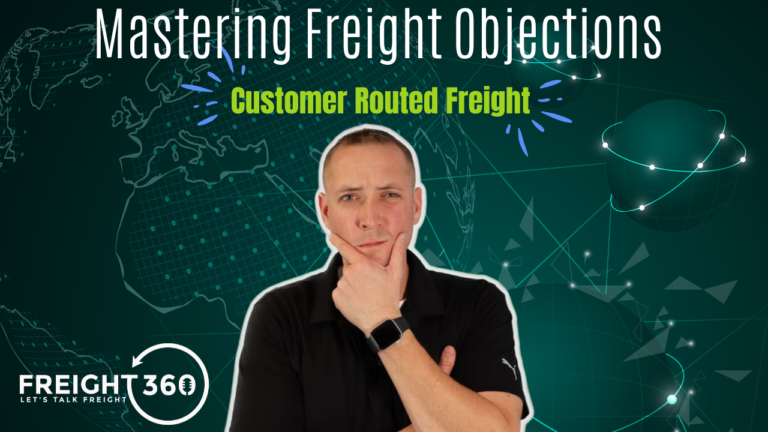Have you ever heard the phrase “accessorial charge” and wondered what it meant? As freight brokers, we usually prefer to simplify the way that we invoice customers and pay carriers. But, sometimes things get a little more complicated and we have to account for extra charges.
What is an Accessorial Charge?
Most freight brokers and carriers prefer to deal with all-in pricing for full truckload shipments. It keeps things very clean, and prevents confusion. In some cases, we’ll separate the linehaul rate from the fuel rate to account for fluctuating diesel prices. But, what about the other sometimes unforeseen costs that pop-up during the actual transit of a shipment? We call those accessorial charges, and you’re likely to run into these as a freight broker. Let’s take a look at five of the most common accessorial charges that you’re likely to come across as a freight broker: detention, TONU, additional stops, layover, and lumpers.
Detention
First up is detention. Detention is a term that we use to describe time that is spent sitting at a shipper or receiver waiting to be loaded or unloaded. Since shippers and receivers can be extremely busy at times, it’s common for a truck driver to wait a little bit for an available dock door to open up and for the workers to load or unload the truck. Since the wait is common and generally expected, the industry standard for unpaid wait time is two hours. Any waiting time beyond that two hours is where detention tends to kick in. This can vary by facility, so make sure to check with your customer on their standard procedures. Once the driver passes the two hour free waiting time, it’s normal to pay detention of $50 per hour to the driver. For example, if a driver waits four hours at a facility, they would receive two hours of detention after the two free hours, totally $100. This is a charge that should be invoiced to your customer and passed directly through to your carrier with no additional profit to the broker.
Truck Order Not Used (TONU)
Next, we’ll look at TONU, or Truck Order Not Used. As the name implies, this is a cost paid to a driver for hiring them and then not actually using their truck. You’re compensating a driver for their time even though they didn’t actually haul the shipment for your customer. There is some gray area with TONUs since timing comes into play. Here are two examples where a TONU would and wouldn’t be necessary. Let’s say you hire a driver to pick up a load today. The driver starts heading towards the pickup but your customer cancels the load an hour before the pickup. The driver is already on their way and has wasted fuel and time on your shipment. This is an example of when you should pay a TONU to that driver. Your customer should be responsible to pay you the TONU, typically around $200, and you would pass that directly on to the driver for their time. But, let’s say you hire a driver for a load that picks up tomorrow, and it cancels shortly after you book the driver. That driver is likely still delivering their previous load and hasn’t started to work on your load yet. You wouldn’t likely pay a TONU in this situation. There’s some debate as to when a TONU should be paid, but it’s generally accepted that TONUs are paid if a driver is actively working on your shipment at the time of cancellation.
Additional Stops
Not all loads have just one pickup and one delivery. Some have additional stops, whether planned or unplanned, and this can result in an accessorial charge. If a load has 3 or more stops, the extra stops can be factored into the linehaul rate for the driver, or you can itemize this as an accessorial charge for additional stops. You might see $50-$100 for each additional stop when pricing a load. If a load has an unexpected additional stop, like a delivery being split into two deliveries while it’s already in-transit, you’ll definitely want to break this out as an extra pay item to your driver and invoice your customer accordingly. Extra stops mean extra time for the driver and likely some extra fuel.
Layover
Next is layover. Layovers are like the big brother of detention. Rather than waiting a few hours, a driver might have to wait overnight and redeliver the load the next day. This is called a layover, and you can expect to pay about $500 depending on the equipment type you are dealing with. A driver loses a lot of time with layovers and sometimes it impacts their next scheduled load. Layovers are paid for by your customer when the customer is at fault. Maybe they had a super busy facility or a lack of labor to load or unload. If a driver has to wait overnight because they were late to the pickup or delivery, a customer won’t pay a layover and might even charge you a late fee, so it’s important to document in and out times for drivers so you know who is at fault for a layover, and detention for that matter.
Lumper
Lastly, let’s cover lumpers. A lumper is a gig-worker that is contracted on a per-load basis to load and unload a trailer. Oftentimes you’ll see lumper workers at large facilities such as produce distributors. They don’t work for the customer or the carrier, so they’ll need a separate payment at the time of their services. Customers are aware of the use of lumpers at their facilities so they will let you know if a lumper will be used and what the payment will be. These can range from $75-$200 and they will add this amount to your pay after verifying the lumper receipt with their invoice. Since the driver is the one that is actually on site with the lumper at the time of loading or unloading, they will usually pay the lumper fee out of pocket and get reimbursed by you, their broker. They might even ask for an advance from you to pay for the lumper up front rather than wait for reimbursement.
So those are some of the most common accessorial charges that you will see in full truckload. We’re going to break some of these down in more detail in our future content.





